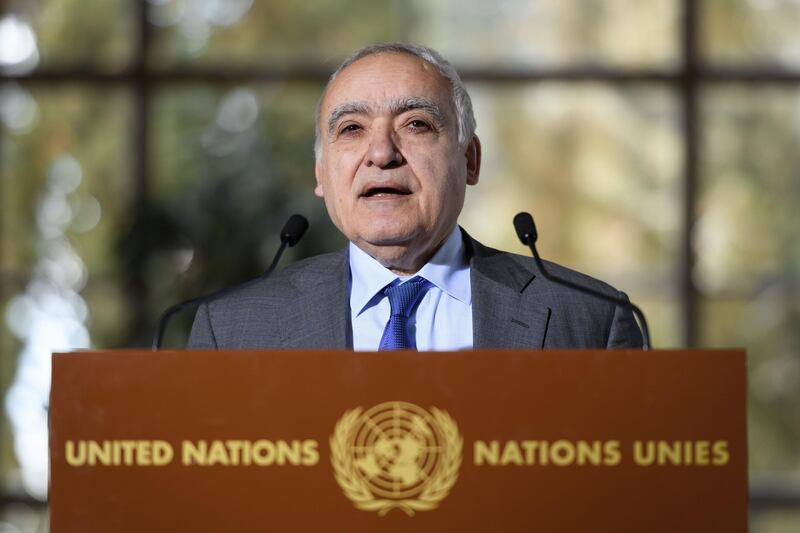The United Nation’s envoy for Libya Ghassan Salame resigned on Monday, saying he can no longer continue his work because of health reasons.
“My health no longer allows this rate of stress,” Mr Salame wrote in a tweet on Monday, adding that he had asked UN Secretary General Antonio Guterres to be relieved of his post.
The former Lebanese minister of culture has played a key role heading the United Nations Support Mission in Libya (UNSMIL).
In his tweet he mentioned recent attempts aimed at reconciling the warring factions in Libya’s bitter civil war, saying he had worked for two years seeking to “reunite Libyans, curb external interference and preserve the unity of the country”.
In January world leaders met in Berlin at a high-stakes summit to discuss ways to end the conflict.
At the talks in Germany, Mr Salame spearheaded efforts to broker a lasting ceasefire in the Libyan capital Tripoli and check foreign interference in the North African nation.
Libya has been plagued by violence following the 2011 uprisings and subsequent Nato-backed intervention that ousted 40-year ruler Muammar Al Qaddafi.
In 2014 the country erupted in an internecine civil war pitting eastern and western factions against one another.
In April 2019, the head of the Libyan National Army (LNA) launched his offensive against Tripoli-based Government of National Accord (GNA). Since then the conflict has increasingly drawn in international powers.
The talks in Berlin failed to achieve Mr Salame’s goal of a lasting truce in Tripoli. The summit’s other achievements, announcing a commitment by international powers to Libya’s much-flouted arms embargo and the start of military talks in Geneva have also unravelled in the intervening weeks.
Mr Salame’s successor will face an unenviable list of obstacles as they look to resurrect negotiations that were suspended at the end of February.





